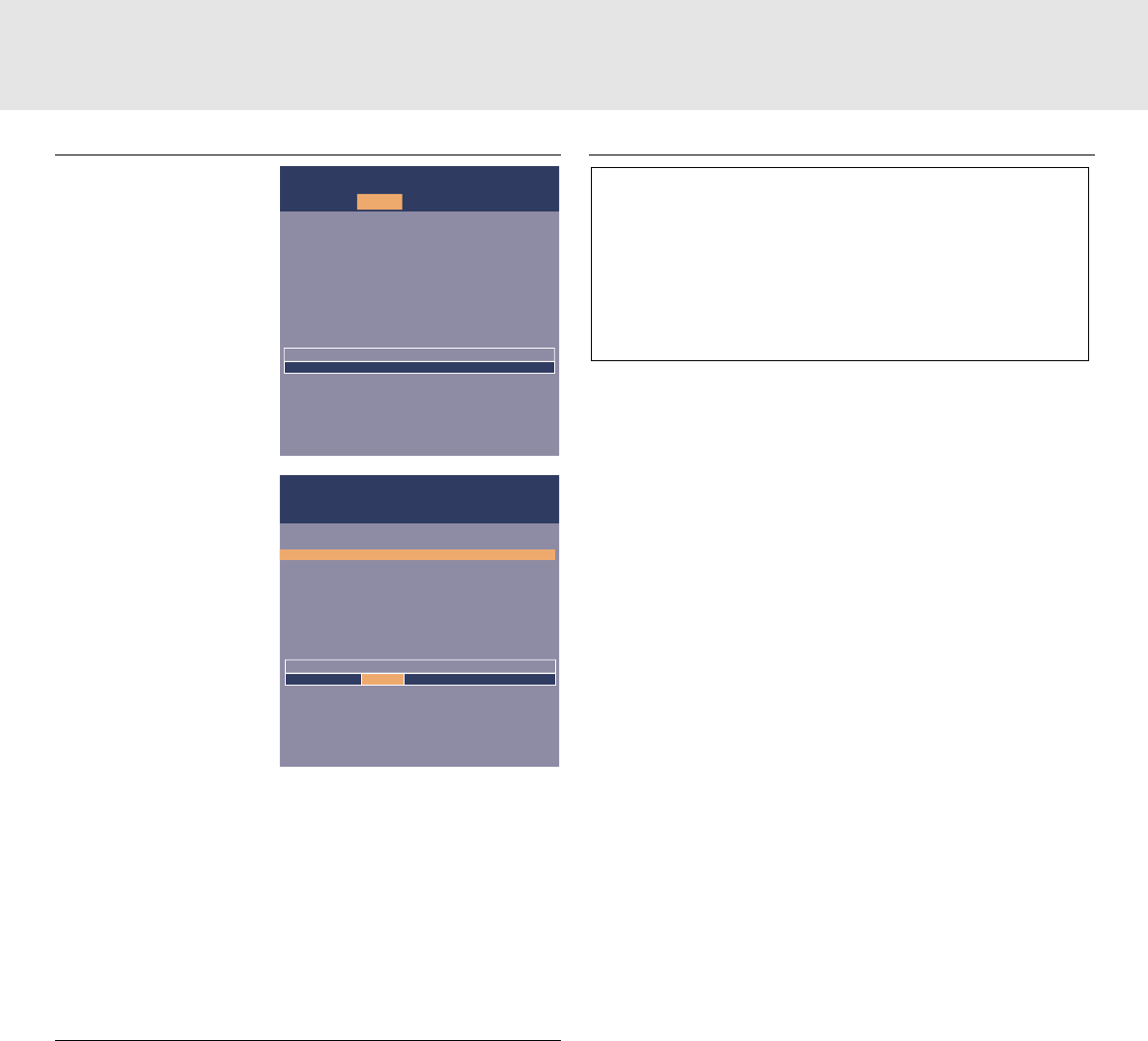
2. Use Cursor Control left
and/or right to move the
cursor to any other item
in the menu bar.
3. Select the sub menu item
to be adjusted using
Cursor Control up and/or
down.
4. Adjust the selected item
in the action window at
the bottom of the screen,
using Cursor Control left
and/or right.
5. Select the next item to
be adjusted in the sub
menu and adjust as
described above.
6. Press Menu to close the
On Screen Display.
Language selection
The projector can display menus in one of six different languages.
1. Press Menu.
– The menu bar appears on the screen.
2. Use Cursor Control to select Settings in the menu bar.
3. Use Cursor Control to select Language from the sub menu.
4. Use Cursor Control to select the required language in the
action window.
5. If required, select the next item to be adjusted or press Menu
to exit.
Display and picture control
The projector’s picture is set to standard specifications at the
factory. However, you can adjust the image to suit your own
preferences.
The projector will store the last used settings for every source. So
when you switch from one source to another, the settings of the
source switched from will be stored and the settings of the source
switched to will be recalled.
When the projector is switched off and on again the settings for
the selected source will be recalled again.
Data only
For data signal input, the following adjustments can be made:
– Auto image
automatically sizes and positions the image to fit optimally in
the screen picture;
– Horizontal size
adjusts the computer image in a horizontal direction to make
the image completely fill the screen;
– Shift
adjusts the computer image in horizontal and vertical direction
to centre it on the screen;
– Phase
when connecting the projector to your PC for the first time, be
sure to adjust the phase control for optimal readability of the
projected text.
Data and Video/S-Video
For both data and Video/S-Video signal input, the following
adjustments can be made:
– Digital Freeze
captures a moving picture (still picture);
– Digital Zoom
enlarges a part of the picture;
– Pan
selects another section of enlarged picture (in combination
with digital zoom);
– Keystone Correction
corrects picture distortion of the vertical keystone type by
internal scaling;
– Brightness
adjusts brightness of the displayed picture;
– Contrast
adjusts the overall contrast intensity;
– Sharpness
controls the contour impression of the picture;
– Colour Temperature
adjusts the overall picture impression from warm to cool;
– Mirror
mirrors the picture for use of the projector in various positions
with respect to the user(s) and the projection screen (for
further explanation see ‘Display and picture control’ - ‘Mirror’).
Video/S-Video only
For Video/S-Video signal input, the following adjustments can be
made:
– Hue (only for NTSC)
adjusts the tint of the projected image;
– Saturation
adjusts the colour saturation of the projected image.
– Picture Format
selects one of three picture format options (4:3, 16:9 or 16:9
enlarged);
Tip for Windows users:
To adjust size and phase correctly:
1. Select ‘Start’ and then ‘Shut down’.
2. Adjust the projectors size control, so that no vertical bars
are visible.
3. Now adjust the projectors phase control for maximum
brightness of the projected image.
4. Press ‘No’ in the Windows shutdown screen to cancel the
shutdown action.
Display
Brightness
Contrast
Sharpness
Hue
Saturation
Colour temperature
Picture format
Mirror
min
Move pointer left or right to adjust the contrast level.
Picture Audio Settings
max
Picture
Display
Brightness
Contrast
Sharpness
Hue
Saturation
Colour temperature
Picture format
Mirror
Audio Settings
8. Operation
16
(b)
Preparation/Display and picture control
XP Hopper SV30 Eng.* 05-09-2000 11:56 Pagina 16


















